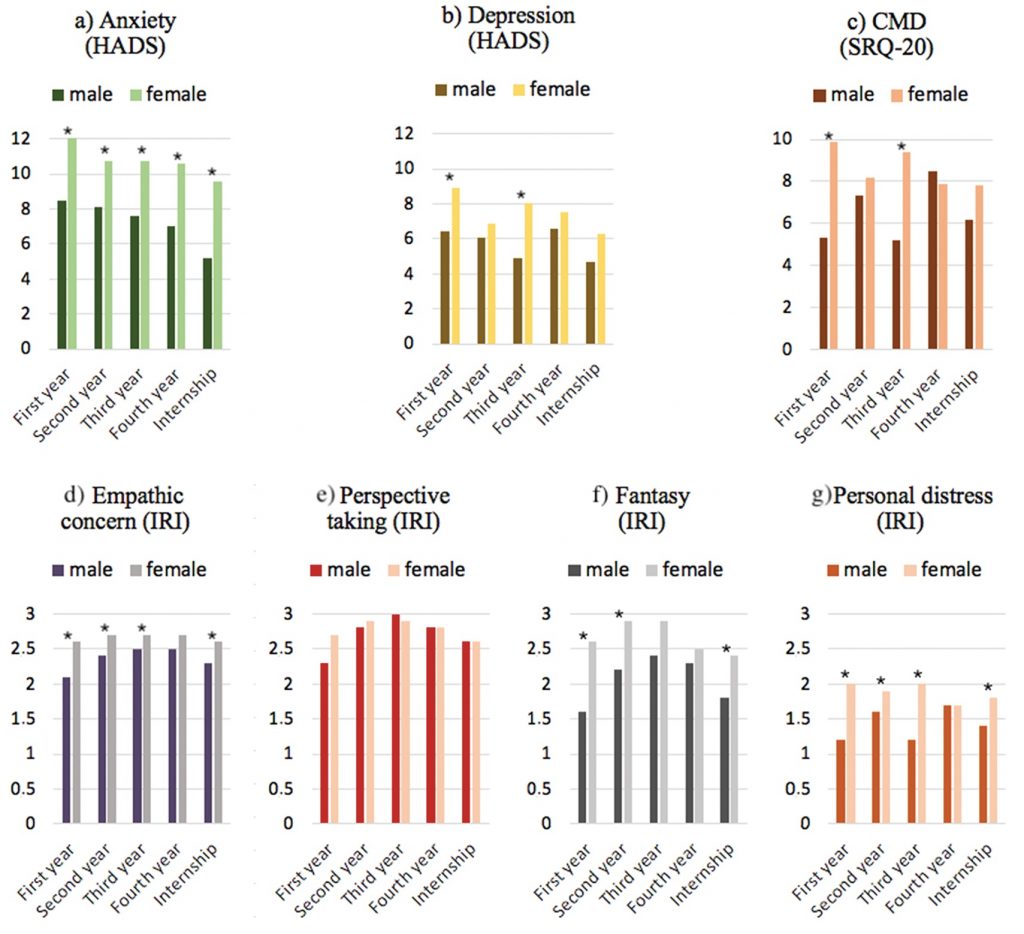Clinics (Sao Paulo). 2021;76:e3007.
Mental health in medical students during COVID-19 quarantine: a comprehensive analysis across year-classes
DOI: 10.6061/clinics/2021/e3007
OBJECTIVES:
The COVID-19 pandemic brought abrupt changes when quarantine measures were implemented. Most medical students had distance learning as their main content delivery mode, but in clerkship (fifth and sixth years), in-person activities were maintained under new protocols. These different modes may have affected student mental health. This study examines mental burden and empathy in medical students during the beginning of the COVID-19 pandemic according to the year of attendance.
METHODS:
All students attending first to the sixth year in the same medical school were invited to participate. The Hospital Anxiety and Depression Scale (HADS), the Self-Reporting Questionnaire (SRQ-20), the Interpersonal Reactivity Index (IRI), and the Mindful Attention Awareness Scale (MAAS) were provided.
RESULTS:
HADS scores for Anxiety and Depression (n=347) were 9.8±4.3 and 7.1±3.6, respectively; the SRQ-20 (n=373) score was 8.1±4.5; all scores were negatively correlated with the year of attendance. IRI (n=373) scores were: 2.6±0.5 (Empathic Concern), 2.7±0.7 (Perspective Taking), 2.5±0.9 (Fantasy), and 1.7±0.7 (Personal Distress). Fantasy was negatively correlated with the year of attendance. MAAS scores were positively correlated with the year of attendance. Worse mental health scores were found for first-year students across all scales.
CONCLUSIONS:
We found high levels of mental burden in medical students in the early period of the COVID-19 pandemic, especially in first-year students, who may have fewer resources to deal with stress. Moreover, as they entered college a short time before the pandemic, they were unable to experience academic life fully or create important new social support networks to deal with adversities.
Keywords: Anxiety; COVID-19; Depression; Empathy; Medical students
153


